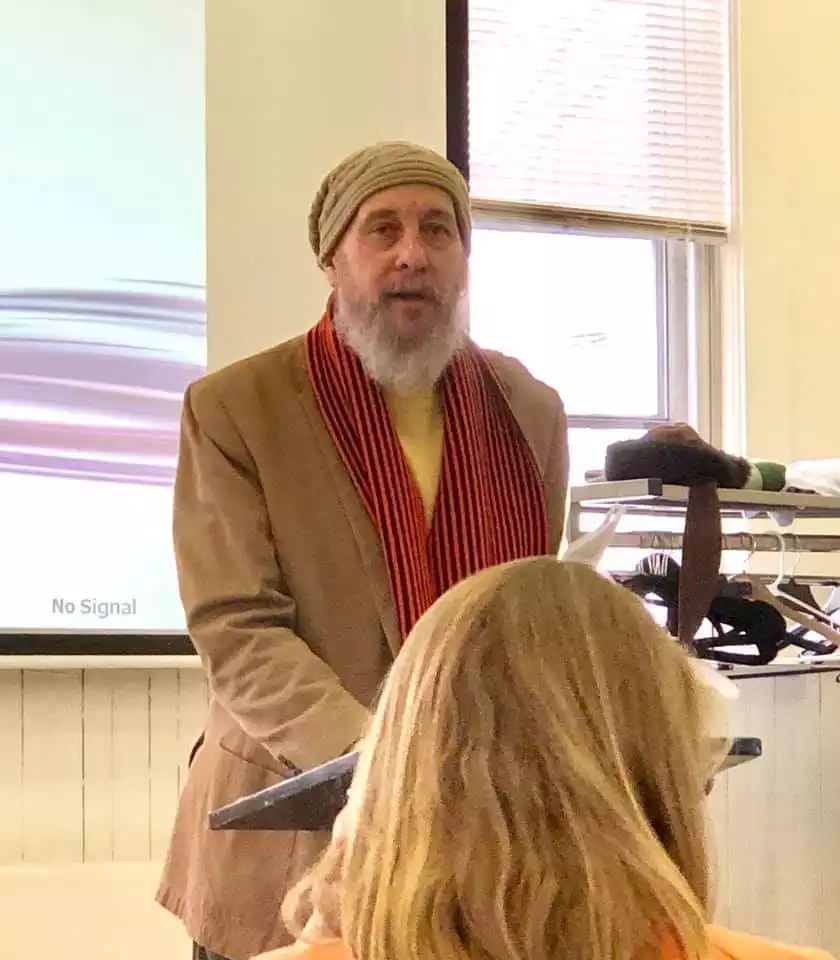
One of the biggest benefits of serving as the community engagement coordinator for the library is getting to know so many people who are doing really great work in Princeton. Fostering community engagement in a place that has long seen itself as the “community’s living room,” continues to be an opportunity to explore what makes a community, how you hold a community together and how you create a space where people can come together to learn, celebrate, have difficult conversations and look out for one another.
This month, we are featuring a partner organization that has much to teach about building community, particularly in a time of crisis – The Witherspoon Jackson Neighborhood Association. To learn more, we had the pleasure of connecting with Leighton Newlin, chair of the WJNA.
How long has the Witherspoon Jackson Neighborhood Association been around and what prompted its formation?
The Witherspoon Jackson Neighborhood Association (WJNA) was formed, and I use that term loosely, by Jim Floyd, former mayor of Princeton Township, approximately 15 years ago. It all began very simply when Jim would hand write index cards with a Saturday morning monthly meeting agenda on them and send them out to the neighborhood. The monthly meetings began and are still held at one of four local church venues in Princeton’s first neighborhood, the historic (WJ) African American community and Princeton’s 20th Historic District.
How do you think the WJNA helps support or build community?
The WJNA builds community in a number of ways:
Informing residents of the neighborhood about issues and situations that impact their quality of life in significant ways. Property taxes, leadership, representation, schools, climate change, diversity, equity, racism and other areas of discussion are all covered at one time or another at our monthly meetings.
We bring in speakers to share important information with our residents and give our residents a voice in matters that matter.
We communicate with our base by use of email blasts and block captains who go door to door, street by street, with a notice/agenda attached. The best attended meetings are when a topic is ‘red-hot’ but even when we don’t have a full eagenda – people come anyway to spend quality time with their neighbors. The wonderful thing about meetings is that they give folks a sense of belonging and connecting to others which helps to build a foundation of trust and caring – the cornerstones of community.
In this time of social distancing, have you been able to continue the work of the WJNA? What has that looked like?
As I said earlier, the monthly meetings set the structure to give folks a sense of belonging and this has served us well during the current COVID-19 pandemic. There has been an exceptional response to the needs of the marginalized community that lives in the neighborhood, and there has been an outpouring of connectivity through virtual communication even during this time of social distancing. While we have not been gathering together on a monthly basis, we have, through Bernadine Hines (shoutout), been able to stay in contact with residents and provide updates on important information as it pertains to the issues of health and safety. How does the mission of the WNJA align with the library’s?
The mission statements and core goals of the WJNA and PPL mirror each other’s organizational goals in that both organizations exist to be resource and referral networks and clearing houses for community engagement and input. Both organizations seek to be conduits for building community and relationships by providing information and services that assist and support the residents we serve.Is there any project or event that you are particularly excited about at the moment?
The project that excites me most at this time is the opportunity to take stock of the painstaking impact that the current pandemic has had on the residents of Princeton … most especially those residents who live in the WJ neighborhood who were experiencing difficulties prior to the pandemic and who now must survive the greatest threat the world has known in our lifetime. Our (Princeton) town’s response to the pandemic has been extraordinary on all fronts. My hope is that we as a town, and as a community, can pay our caring and loving attitude forward, post COVID-19, toward a better, more inclusive, more diverse, more caring, more equitable and more human existence in how we treat, care for and look out for our fellow friends and neighbors.
Photo credit: Leticia Fraga
